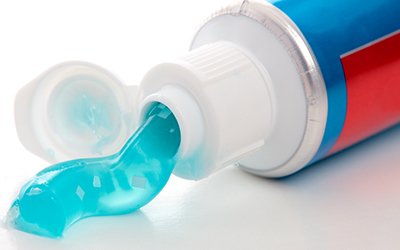Posted on Nov 10, 2014
Image Credit: © Dreamstime.com
3 New Breakthroughs in Dental Science to Know About
Main Content A+ A- A
Dental Science is a constantly evolving. Every year there are dozens of changes and breakthroughs that dentists need to be aware of, though it’s not always easy to find time to keep up with the trends.
Here are 3 recent stories that you should know about:
New toothpaste could replace lost minerals while you sleep
The BioMInF toothpaste is now available online and is set to be in stores by the end of the year. The ingredient involved slowly releases calcium, phosphate and fluoride ions over an 8 to 12 hours period, which allows fluorapatite to form.
This is particularly beneficial in the prevention of tooth decay and the strengthening and protection of tooth structure and could significantly change the nature of commercial toothpastes in the future.
Sports drinks could be a huge cause of tooth erosion in children
A survey has found that a large proportion of children aged 12 to 14 have been found to consume sports drinks socially.
Many claimed to have been attracted to them for price, taste and availability. There is a mistake among many members of the public who associate sports drinks with health as they are targeted at athletes, though their content is not dissimilar to other unhealthy soft drinks and sodas.
“Dental health professionals should be aware of the popularity of sports drinks with children when giving health education or advice or designing health promotion initiatives,” said Maria Morgan, senior lecturer in dental public health at Cardiff University.
Poor oral health may be linked to cognitive decline
Fortunately in recent years we’ve begun to understand the impact of gut microbiomes on brain function and cognitive health.
However, what we don’t yet know is the relationship between oral hygiene and cognition.
New findings from Duke University suggest that there may be a link between regular dental visits, oral hygiene and the slowing of cognitive decline. A look at longitudinal data in studies published between 1993 and 2013 found that in some studies there was a link between oral health measures, including number of teeth, number of cavities, and presence of periodontal disease, and an increased risk of cognitive decline or dementia.
It’s important to note that the evidence is not yet definitive enough to conclude causation in either direction.
Whether you are looking to stay in the industry for years to come, or if you’re interested in selling your practice, it can be beneficial to stay on top of the latest trends.
Keeping up to date can allow you to provide your client relevant tips and advice.
A dental office that has a reputation as modern and knowledgeable will be a more prosperous and valuable practice than one that rests on its laurels.

